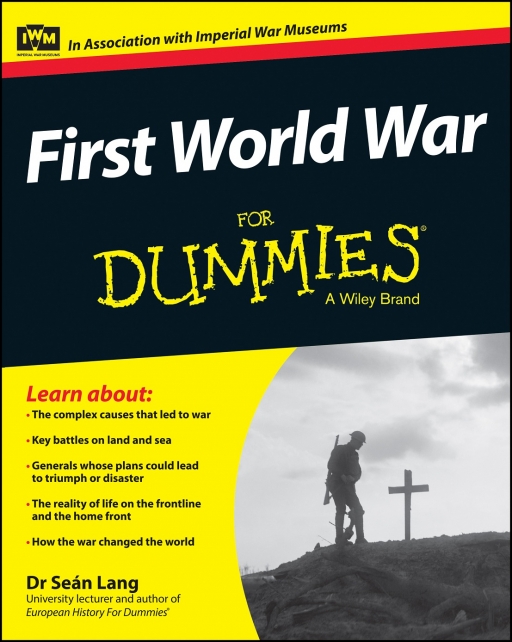To mark the Centenary of the First World War, Dr Seán Lang, Senior Lecturer in History at Anglia Ruskin University, has written First World War for Dummies.
Working with the Imperial War Museums and the publishers Wiley, the book explores the origins of the conflict and the battles which took place on land, sea and in the air.
Plotting the course of the war in all of its theatre, from Europe, to Africa, the Pacific and the Middle East, the book considers the impact on soldier and civilian alike.
Dr. Lang also considers themes such as the changing role of women and assesses arguments about who was to ‘blame’ for the outbreak of the conflict, the role of the generals in the execution of the war, as well as whether or not the First World War led to the Second.
Dr Lang said: “Blackadder Goes Forth portrays the generals of the First World War to be heartless incompetents sipping sherry while sending men over the top to their deaths. Some certainly fitted the General Melchett stereotype, but overall this view is far too simplistic.
“The generals on the Western Front were caught in a situation no military leaders had ever faced, and with new military technology that was developing at a bewildering rate. People often criticise the generals of the First World War for launching futile attacks for minimal gain, but they were on a very steep learning curve.
“Yes, there were ghastly mistakes, such as the attack on the Somme in 1916 and the disastrous attack at Passchendaele the following year. But the British Generals also had some big successes, especially the campaign in 1918 at the very end of the war, which was one of the most successful campaigns the British army has ever fought.
“The debate on the generals of the First World War tends to focus heavily on the British generals, even though other countries certainly produced some spectacularly unsuccessful leaders, such as the Italian General Cadorna, the French General Nivelle, much of the Russian high command and, at least at the very end of the war, Germany’s General Ludendorff. It’s important not to forget these non-British examples of military ineptitude”.
Source: Anglia Ruskin University
Images courtesy of Anglia Ruskin University
Posted by: Daniel Barry, Centenary News
